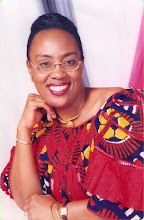Ghana is situated on the southern coast of the West African bulge and is bordered to the east by Togo, to the west by the Ivory Coast, to the south by the Atlantic Ocean and to the north and northwest by Burkina Fasso.
CLIMATE
The climate is tropical but relatively mild for the latitude. Climatic differences between various parts of the country are affected by the sun's journey north or south of the equator and the corresponding position of the intertropical convergence \one, the boundary between the moist southwesterly winds and the dry northeasterly winds. Except in the north, there are two rainy seasons, from April to June and from September to November.
VISAS & IMMIGRATION
To enter Ghana, citizens of all but ECOWAS -member States require visas (at a nominal fee).
MONEY
Official Currency: 100 pesewas=1 Cedi
BANKING & BUSINESS HOURS
Banking: 08:30 - 14:00 (Monday to Thursday) 08:30 - 15:00 Friday.
A few banks in the larger cities are open from 08:30 to 12:00 on Saturdays
INTERNET ACCESS/CAFÉS
BusinessGhana Internet Cafe - Accra 3rd floor Unity House,next to Opera Cinema.On Opera Square.
PEOPLE
Ghanians come from six main ethnic groups: the Akan (Ashanti and Fanti), the Ewe, the Ga-Adangbe, the Mole-Dagbani, the Guan, and the Gurma.
LANGUAGES
The major languages spoken are Twi, Fante, Ga, Hausa, Dagbani, Ewe and Nzema. English is the official language of Ghana.
RELIGION
60% Christian, 15% Muslim, 25% traditional African religions
FESTIVALS
Ghana is a country that celebrates festivals. There are several rites and rituals that are performed throughout the year in various parts of the country. They cover the right of passage child-birth, puberty, marriage and death. To the majority of people, these celebrations provide all that is satisfying to their communities and families.
MUSIC
Ghana is often described as a land of festivals, music, and traditional dances. There is hardly any community, clan, or tribe which lacks an occasion to celebrate annually. Many festivals include thrilling durbars of chiefs, when tribal leaders and Queen Mothers process in decorated palanquins, shaded by the traditional umbrellas, and supported by drummers and warriors discharging ancient muskets.
ART & CRAFT
The Ashanti are noted for their expertise in a variety of specialized crafts. These include weaving, wood carving, ceramics, and metallurgy. Of these crafts, only pottery-making is primarily a female activity; the others are restricted to male specialists.
Kente Cloth
Kente cloth is only worn in the southern half of the country and - as distinct from other forms of traditional weaving - is reserved mainly for joyous occasions
Traditionally the Kente cloth is a festival cloth worn mainly during the annual and seasonal festivals, which are happy occasions. Today they are not only used for festive occasions but also during the rituals associated with the important events of life; for example, marriage, death, and religious worship. Therefore, it is quite appropriate for outsiders to wear it for religious and festive occasions.
Adinkra Symbols
Is one of the highly valued hand-printed and hand-embroidered cloths. Its origin is traced to the Asante people of Ghana and the Gyaman people of Cote' d'lvoire (Ivory Coast). However, the production and use of Adinkra have come to be more associated with the Asante people than any other group of people. Around the 19th Century, the Asante people developed their unique art of adinkra printing. Adinkra clothes were made and used exclusively by the royalty and spiritual leaders for very important sacred ceremonies and rituals.
Wood carving
Is divided into many branches, each with its own specialists. Among the major products are wooden sculptures of outstanding artistic quality and the talking-drums (ntumpane).
The famous wooden "stools" are symbolic and ritual objects rather than items of furniture. "In Ashanti, a generation or so ago, every stool in use had its own special name which denoted the sex, or social status, or clan of the owner"
Recipes
Soups are the primary component in Ghanaian cuisine and are eaten with fufu (either pounded plaintain and cassava or yam), kokonte (cassava meal cooked into a paste), banku (fermented corn dough), boiled yam, rice, bread, plantain, or cassava. The most common soups are light soup, palmnut soup, and groundnut (peanut) soup.
West African Tours We show you the very best that Gambia has to offer in adventure, cultural, bird watching, fishing, roots, sports fishing, four wheel drive, safari and day tours. We also offer Senegal, Ghana and Mali tours.
Enjoy Your Gambia Experience With Us!
220 449 5258
watours@qanet.gm
watours@gamtel.gm
watours@gmail.com
www.westafricantours.com/
Subscribe to:
Post Comments (Atom)











No comments:
Post a Comment